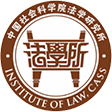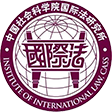 字号:
字号:小
中
大
2020年7月3日,中国社会科学院国际法研究所科研外事处处长廖凡研究员接受中国国际电视台(CGTN)记者视频连线采访,就疫情防控中的信息披露与隐私保护之间的平衡问题发表了自己的看法。廖凡研究员强调,任何涉及个人隐私的信息和数据的采集和披露,均应坚持合法性、必要性和比例性这三项基本原则。
附:CGTN:Contact tracing efforts trigger data privacy concerns
Issues over data privacy have risen as relevant authorities work to track and control the spread of COVID-19. Many people are questioning how to strike a balance between protecting personal data and public health.
The coronavirus pandemic has brought privacy and surveillance concerns to the forefront – from hacked video conferences to proposed government tracking of smart devices, as measures to limit and prevent the spread of COVID-19.
How does China see digital privacy issues amid the outbreak? We get some reactions from the public.
A Beijing resident said: "This is an era of internet and big data. Using the Health Kit app to ensure people haven't been to high-risk areas is good for our safety. I support these kinds of measures."
"It's an extraordinary time, so using extraordinary measures to combat the virus is acceptable. But in the long run, when the pandemic is under control, I'm afraid collecting such personal data is unnecessary. Otherwise, it's an invasion of privacy. It's a bit excessive if there's a requirement for too much information," another resident shared his opinion.
There are divided opinions among the Chinese public on the usage of smartphone data for tracking and monitoring purposes. The majority of our interviewees, however, show favor when it comes to fighting the pandemic. Let's hear from an expert.
Professor Liao Fan, from the Institute of International Law of the Chinese Academy of Social Sciences, said three key issues should be considered.
First, the collection and disclosure of the relevant information shall be strictly in accordance with the law. The requirements and criteria shall not be arbitrary or capricious. For example, Chapter 3 of the Law on the Prevention and Treatment of Infectious Diseases provides for the reporting and information collection duties of the relevant entities and persons.
Second, the principle of necessity shall be adhered to. That is, personal information about the cases shall only be collected and disclosed to the extent necessary to inform and warn the community and the general public. Beyond that, it can be excessive.
Third, we should also pay attention to the principle of proportionality. The scope and depth of any disclosure of personal information shall be in proportion to the seriousness of the diseases and the degree of risks they are posing to the public security.
The question remains over how much of our privacy we are willing to sacrifice to fight a fast-spreading virus.
Accepting the current surveillance methods to curtail COVID-19 could lead to them becoming a permanent fixture in our lives.
But as the pandemic rages on, these methods appear to remain necessary. Many say that if the technology is available to minimize threats, there is a moral obligation to use it for such purposes--all while sustaining calls for improvements to cybersecurity and data protection.
Updated 21:10, 03-Jul-2020
By SuYuting



